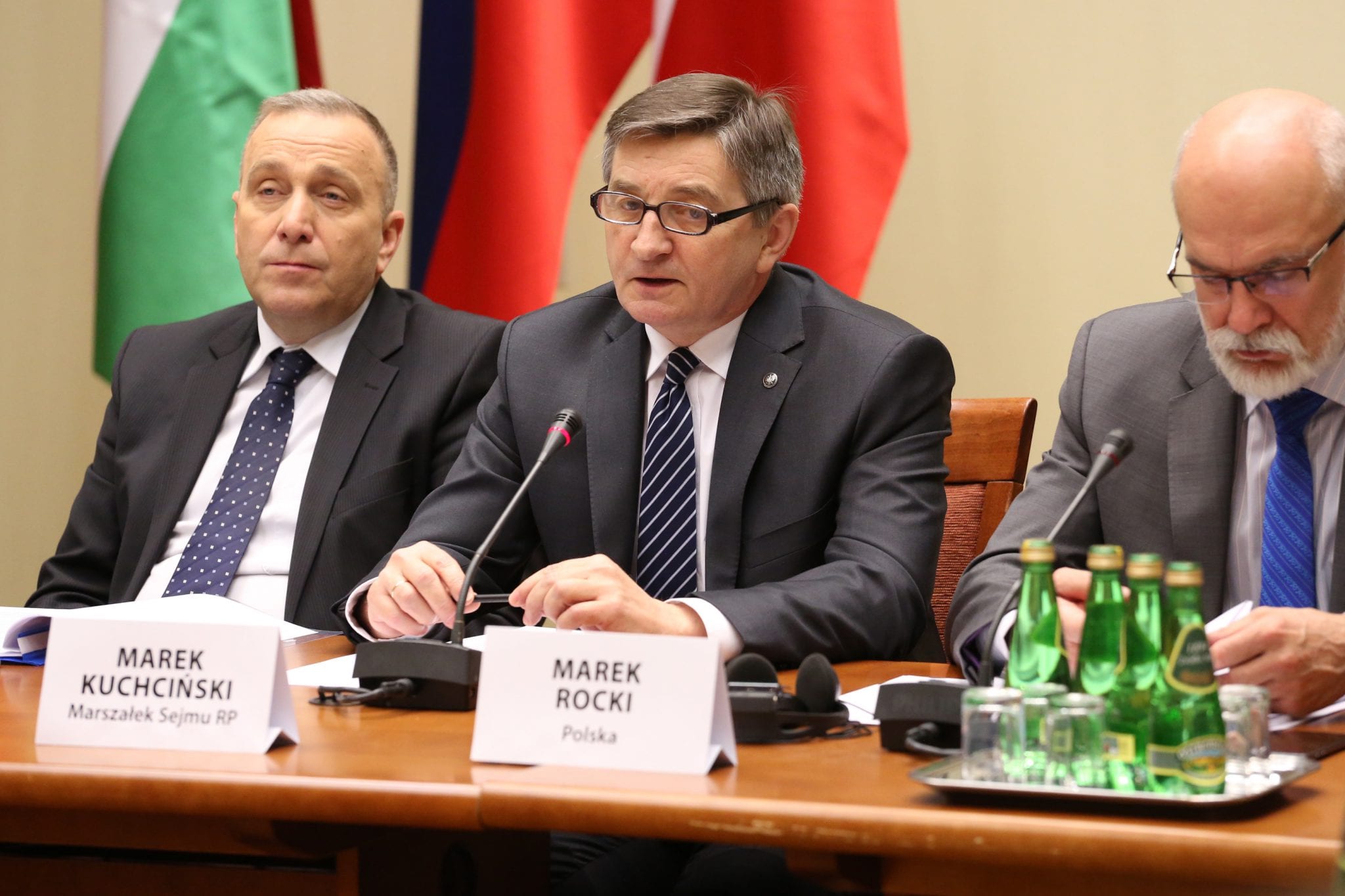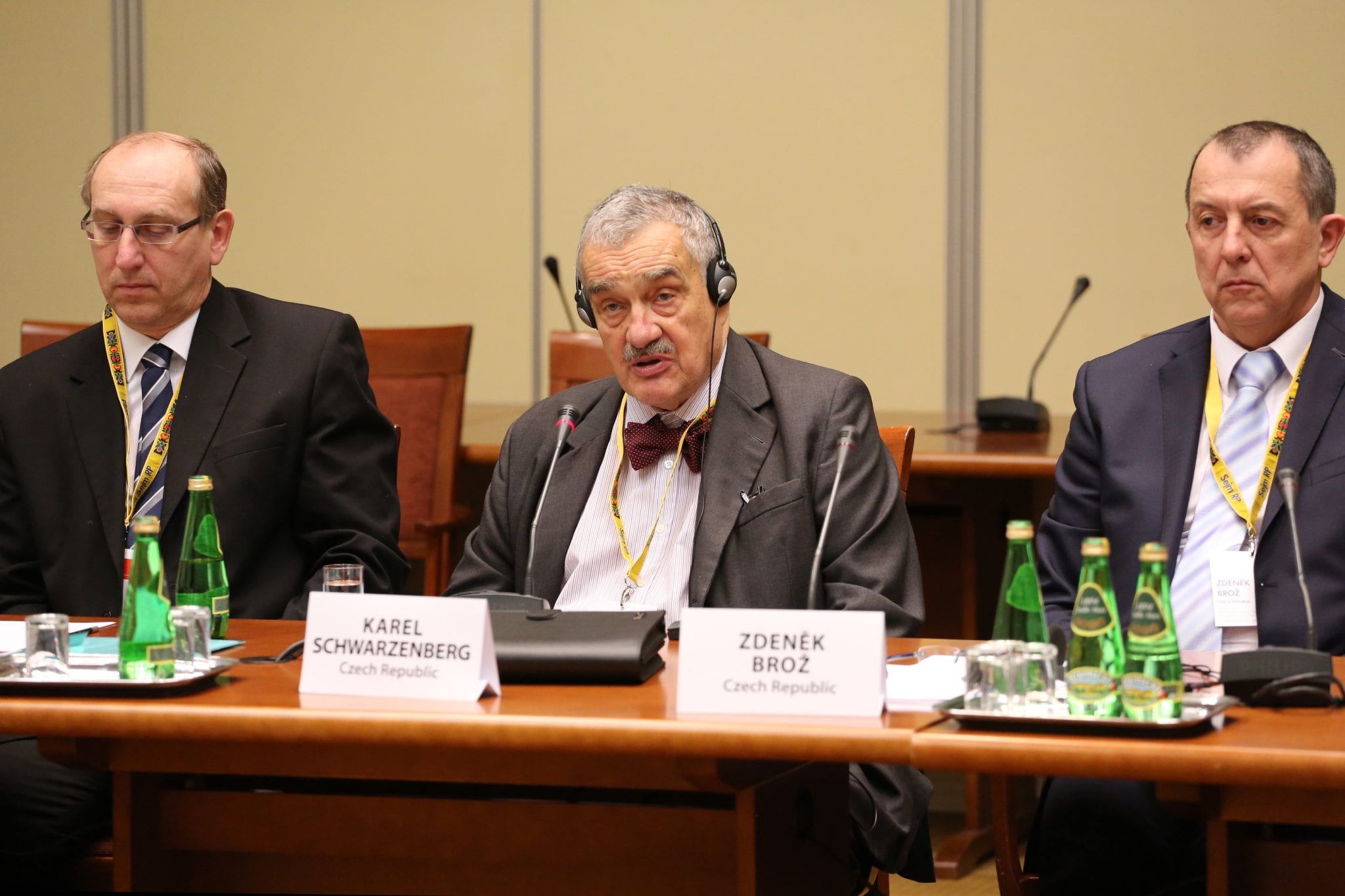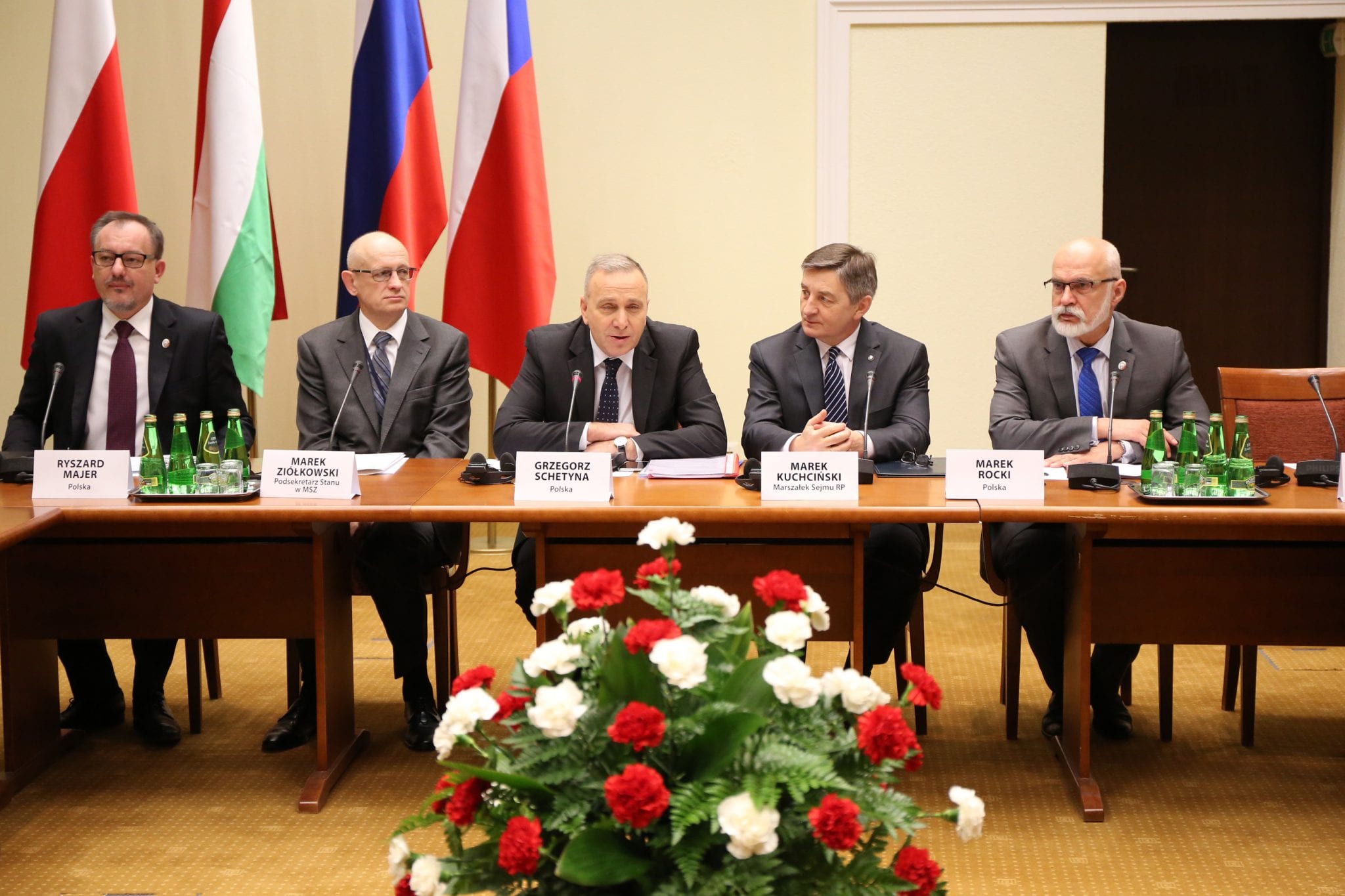A meeting of the foreign affairs committee was held at the Sejm on Tuesday
parliaments of the Visegrad Group countries. The main topics of discussion are: security and current international situation.
The conference was opened by Marek Kuchciński, Speaker of the Sejm:
There is a lively debate in the European Union about its renewal. The phenomena and processes of recent years have proven that the European Union is not able to deal effectively with the most important problems. In the previous decades European institutions often focused on secondary issues and marginalized the most important ones such as security, expansion of freedom, entrepreneurship and competitiveness; balanced consideration of the raison d'etre of all member states, concern for national sovereignty and restoring the role of national parliaments.
This attitude has produced dangerous results. I will mention the three most important ones. First, the helplessness of the European Union in the face of migration processes. Second, acquiescence to actions taken by European institutions, which began to distort the provisions of European treaties and introduce political inequality; such behavior was at the root of Brexit and generated conflicts between European institutions and member states (example of Hungary and Poland). Third, there is a rise in anti-integration sentiment in many countries in response to the project of federalizing the European Union as a superstate.
Today, the European Union is not protected from the negative effects of the global crisis either by an economic union or the eurozone.
Nevertheless, I am an optimist. I see an opportunity to rebuild the foundations of European integration around such principles as the freedom of nations, equality of states, unity of the continent, and subsidiarity of European institutions.
Poland rejects any plans to divide the European Union according to different speeds and to close the community to other European countries.
We are aware that there is also Europe outside the European Union. In the Visegrad countries this knowledge is obvious, because we are the eastern and southern border of the European Union.
Two factors may be important in the quest to renew the European Union.
The first is the special role of Central European countries in this process. The Visegrad Group is the center of Central Europe - only it has the political potential which can be relied upon by other Central European countries neighbouring it in the South, East and North. I think that Central Europe needs a strong Visegrad Group, which is able to express the interests of this part of our continent on the European forum. We need each other. In Central Europe, nations are attached to the sovereignty of their own states and express strong support for the idea of European integration. This is important social capital today.
The second factor is related to parliamentary diplomacy, which can play a special role in the discussion on the renewal of European integration. The meetings of the Foreign Affairs Committees of the Visegrad Group parliaments are an example. This forum for dialogue has existed for many years and undoubtedly contributes to the socialization of foreign policy. Parliaments not only evaluate foreign policy, but also create it. MPs have considerable power to influence changes in public awareness.




